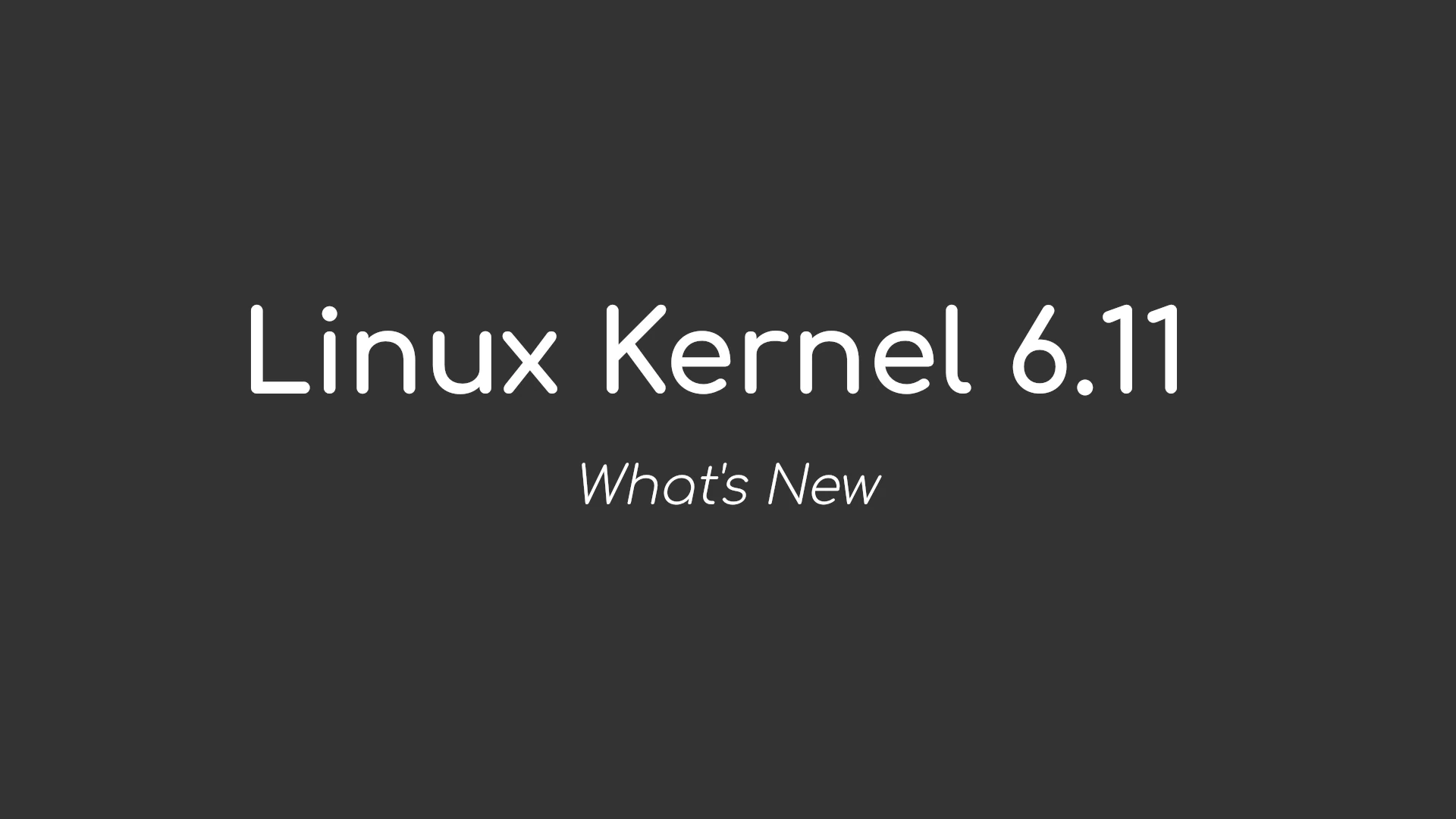Linus Torvalds announced today the release and general availability of Linux kernel 6.11, the latest stable version of the Linux kernel that introduces several new features and improvements.
Highlights of Linux 6.11 include a new driver subsystem to enable support upstream for Bluetooth/WLAN chips on Qualcomm platforms, getrandom() support to vDSO on x86 systems adding a new kind of mapping to mmap(2) that lets the kernel zero out pages anytime under memory pressure, virtual CPU hotplug support for AArch64 (ARM64) ACPI systems, and a new mechanism to create interrupt domains.
Also new is a dmaengine_prep_peripheral_dma_vec() function to support transfers using dma vectors and documentation and user in AXI dma, along with STMicro STM32 DMA3 support, support for a minimum version for the Rust toolchain, support for the Arrow Lake and Lunar Lake CPU platforms, Loongson-3 CPUFreq driver support, fast CPPC support in the amd-pstate cpufreq driver, and hwmon interface support to the ACPI fan driver.
On top of that, Linux kernel 6.11 updates KVM support for the LoongArch architecture with ParaVirt steal time support, perf kvm-stat support, and some VM migration enhancements, enables KVM halt poll shrinking by default, rewrites the disk accounting scheme for the bcachefs file system to store accounting as normal btree keys, and implements NFS server-side support for the new pNFS NVMe layout type.
There’s also support for block drivers written in Rust, a dedicated bucket slab allocator that protects against heap-spraying attacks, initial support for AMD’s SEV-SNP secure encrypted virtualization mechanism, Rust abstractions for firmware loading, as well as memory hotplug support and STACKLEAK support for the RISC-V architecture.
Linux kernel 6.11 also brings a unified VMware hypercall API layer to provide for adding API support for confidential computing solutions, a new logic behind the background block group reclaim, automatic removal of cgroup after removing a subvolume, and new ‘rescue=’ mount options for the Btrfs file system, NUMA support for RISC-V ACPI-based systems, as well as many updated and new drivers for better hardware support.
Linux kernel 6.11 will be another short-lived branch supported for only a few months. It will be succeeded by Linux kernel 6.12, whose merge window has now been officially opened by Linus Torvalds and which should be the next long-term supported (LTS) kernel series due out in mid or late November 2024.
You can currently download the Linux kernel 6.11 directly from Linus Torvalds’ git tree or from the kernel.org website if you’re interested in compiling it for your GNU/Linux distribution. However, it’s advisable to wait until Linux 6.11 is included in your distribution’s stable software repositories before performing any updates to the kernel.
Developing story…
